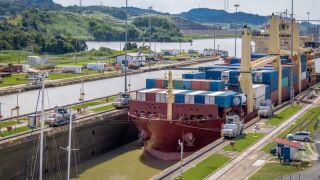Central America
The finalists for the Americas awards 2025 are revealed - winners will be presented in New York on May 14
The deal team behind one of the world’s largest debt-for-nature conversions explores the transaction’s bespoke structure and legal mechanisms
The finalists for the Americas awards 2024 are revealed - winners will be presented in New York on May 15
IFLR is pleased to reveal the winning deals, teams, law firms and individuals in the 2023 Americas Awards
Winners will be revealed at a ceremony on May 18 at the Metropolitan Club, New York
The Americas awards research cycle has now begun – don’t miss on this opportunity be recognised in 2023
Important dates for the Women in Business Law Awards 2023
The Rising Stars Awards releases its winners for the 2022 Americas awards
Sponsored
Sponsored
-
Sponsored by Consortium LegalEver since the Republic of Nicaragua became a member of the Financial Action Task Force of Latin America (GAFILAT), Nicaragua has experienced a gradual, yet impactful, overhaul in its provisions regarding prevention, detection and criminalisation of activities involving money laundering and financing of terrorism.
-
Sponsored by Alfaro Ferrer & RamírezSince Panama is a country with a territorial tax regime, it makes sense to have specific criteria to determine, on a case-by-case basis, if a person can be considered a Panamanian tax resident. A territorial tax regime implies that a taxpayer is only subject to the payment of taxes in Panama if its net monetary income has been obtained from commercial activity carried out within the Panamanian territory. Financial, legal and logistics services are among Panama's most robust economic drivers and these are attractive industries for foreign investment. This incoming foreign capital brings with it foreign individuals and corporate entities, which in turn leads to discussion on whether such foreign individuals and corporate entities should be considered Panamanian tax residents.
-
Sponsored by Consortium LegalThe Salvadoran Law on Secured Transactions (SLST) has been in force since April 2014 by Decree No 488, which is based on the Organisation of American State´s (OAS) Model Inter-American Law on Secured Transactions. Under Article 88, the SLST clarified that the new national central registry would become operational no later than six months after this law came into force (that is, October 15 2014).The creation of the SLST had an overarching theme: to improve access to credit for micro, small and medium-sized enterprises (MSMEs), particularly those involving women-owned businesses and other marginalised groups.
Jurisdictions

















